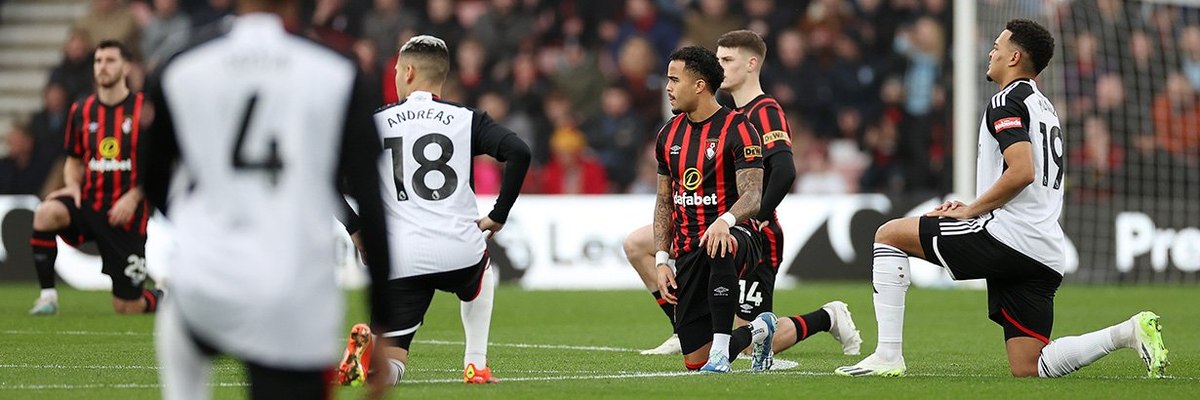In recent years there have been several cases of sports events being mired in political controversy. The YouGov Sports Study looked at what actions connected to politics should (not) be allowed at sports.
Political statements in sports
Of all the ways that players might share political sentiments during a sports event that we asked about, Britons are most strongly opposed to athletes chanting political slogans, with 74% against it and only 15% supporting such actions. A significant majority of Britons also believe that athletes should not be allowed to wear visible clothing or accessories with political messages during sports events (71%) or to make a political gesture with their hands (70% oppose this). Similarly, 65% oppose athletes having visible tattoos or body prints with political messages.
While shaking hands with an opponent is considered to be an act of good faith, sometimes players refuse. Refusing to shake hands with an athlete from another country as a political statement is also largely frowned upon by Britons, with 67% saying it should not be allowed, compared to one in five (20%) who find it acceptable.
When it comes to the question of athletes sitting out the national anthem as a form of protest - 51% are against it. However, 32% believe it should be allowed, and 17% are uncertain. Kneeling during the national anthem, a gesture popularised in recent years, is opposed by nearly four in ten Britons (39%), and supported by 37%.
The case of Russian and Belarusian athletes
Since Russia’s full-scale invasion of Ukraine in 2022, Russian and Belarusian athletes have been banned from competing in international events under their national flags and in the Paris Olympics they were excluded from the opening ceremony.
More than a third of Britons (36%) think Russians should not have been allowed to compete at the Paris Olympics at all, with this coming down to three in ten (31%) for Belarussians, results show.
In both cases, 15% of Britons say athletes from the two nations should have been allowed to compete under their national flags, while 36-37% back the status quo of having Russians and Belarusians compete as neutrals.
Sports and non-democratic countries
The study also asked whether countries that are not considered democratic should be banned from the Olympics.
Approaching four in ten Britons (38%) think non-democratic nations should be allowed to participate but three in ten (30%) think they should not. The youngest generation are more in favour of banning non-democratic countries from the Olympics than those aged 60 or older: 49% vs 29%.
Should athletes be able to switch nations they represent?
The study also looked into the issue of whether athletes should be allowed to transfer between nations or should there be stricter rules guarding against this.
Britons are split on the matter. Nearly half (48%) of the respondents believe that athletes should represent the country they were born in. On the other hand, 41% of the general population supports giving athletes freedom to represent whichever country they choose, as long as they have citizenship. This view is more popular among younger people, and young women in particular, with 61% of women aged 16-24 and 48% of men the same age favouring this option.
Government support for lesser-known sports
Finally, we asked whether sports with lower viewership or attendance should receive government support. Four in ten Britons (42%) believe these sports should still be supported by the government, while 30% do not. Support is particularly strong among the youngest age group, with 54% in favour and 24% opposed.
See the full results here:
Which sports should/not be in the Olympics (during Paris 2024)
Which sports should/not be in the Olympics (post Paris 2024)
Photo: Getty










